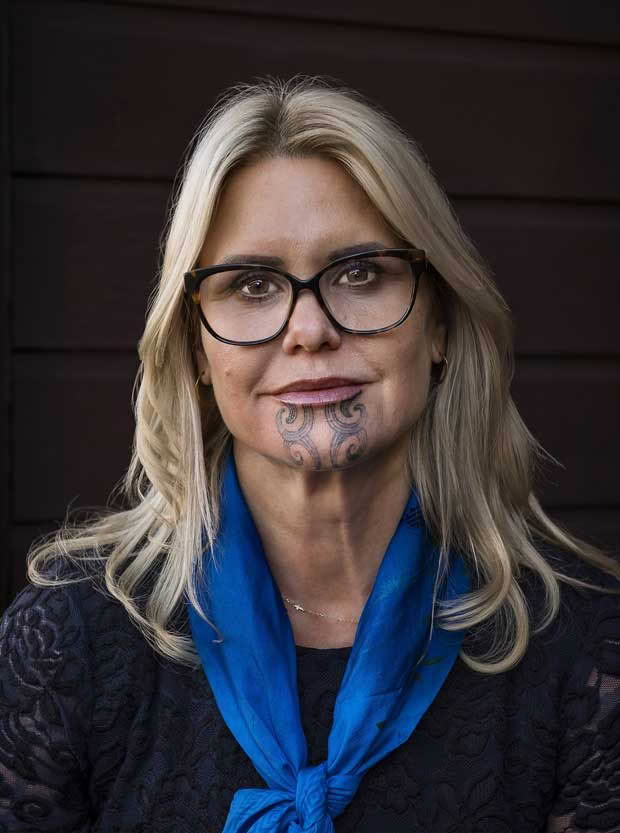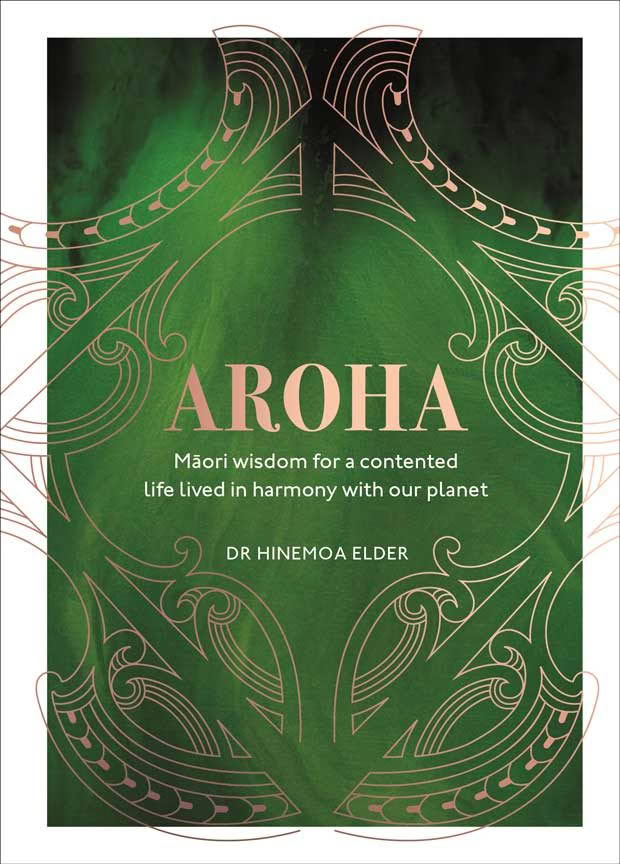Dr Hinemoa Elder on how whakaaro Māori (Māori thinking) can help with modern life stresses

Child and adolescent psychiatrist Dr Hinemoa Elder shares the sayings of her ancestors for use in the modern world.
In her recently published book, Aroha, the noted academic who began her career as a children’s television presenter before retraining in medicine and working in youth forensic psychiatry and treatment of traumatic brain injury, has selected one whakataukī/whakatauākī (proverb or saying) for each week of the year.

She tells Amokura Panoho that in her time at medical school, she was always curious and somewhat frustrated that there was no book of Māori philosophy or Māori thinkers to access.
“ When you train in medicine, you learn about various philosophies and the theories about how we think and how we feel. Those theories are tested in different ways, and their ideas have enormous power and influence. I kept thinking why is there no book of our wonderful sayings, wise ideas. In a sense, this is a book of whakaaro Māori (Māori thinking) as whakataukī are Māori philosophical ideas – they privilege our values.
Ko Hinemoa, Ko ahau – I am just like Hinemoa, I risk all for love
“My mother and her mother both died quite young, and they were from the era in which being Māori was devalued. I saw the conflict that created for them. I wrote Aroha last year as a process about my mother Ina’s legacy. I feel the mamae (the pain and hurt) of the women of that generation, denied the opportunities that are available to us today — this period of healing and reclaiming of our language our identity. We are living in a much more visible way as part of a wider society of Aotearoa that the generation of Māori women before us never got to enjoy.
Tūwhitia te hopo – Feel the fear but do it anyway
“Navigating the public/private interface of my life is something I’ve had to learn. In the past, this celebrity brought unwanted attention, but life is a series of different seasons. Earlier I was more in the public eye, and then I was less so. Now I am back and for different reasons. I don’t think I could’ve written this book 10 years ago and, even now, I’ve done so with a mixture of courage and some trepidation.
Those of us over 50 remember times when media had a different vocabulary, and we have had to learn new skills such as how to navigate social media and the role of technology in our lives. Everyone today has some kind of public profile. There is a different kind of egalitarianism with pressure on how people present themselves, and this creates another source of anxiety and mental stress.
Poipoia te kākano, kia puāwai – Nurture the seed and it will bloom
“I regularly see the negative realities of Māori health, due to the unrecognised consequences of colonisation. One of the powerful things whakataukī can do is to help shine a different light so that Māori and non-Māori can see Māori culture in a more positive way, thereby opening up the potential for better understanding and healing.
Ko te mauri, he mea huna, ki te moana – The lifeforce is hidden in the sea
“I came to realise that I needed to be able to speak our language in my mahi (work) as a doctor. I needed to be able to provide that for whānau (family) who preferred to speak our language as I was missing a whole lot of really important, quality information and relationships with my patients.
I also made a big mistake when I didn’t educate my children in total immersion te reo schooling. I want other people to know that is a major problem – that learning later as an adult is difficult. But it is still worthwhile having the language of our ancestors as your tongue, as your thinking, as it is so good for your heart, for your mind. So if I wanted my children to learn now as adults, I needed to be a role model.
My moko kauae (facial tattoo) also gives clarity around my cultural identity and encourages people to interact with me. Our tūpuna (ancestors) knew the power of a signature on your face; there is no questioning of your identity. I am also aware of how aspects of our culture can be used in a very isolated, very tokenistic way – so this book is also about us as Māori. Wherever we are at on that journey as Māori – it is a journey without an end. Our whakataukī are part of our birthright, and they have survived. They have served us well.
Tini whetū ki te rangi, he iti pokeaō ka ngaro – A small cloud overhead will obscure the stars
“Our karakia (prayers) along with whakataukī are akin to ancient health and safety rituals. Those involved in the incantations must stop to be in the moment, to pay respect and to breathe — quite simple but powerful actions.
The world is experiencing immense change with major shifts in thinking. I am hopeful Aroha will provide these taonga tuku iho, these precious nuggets of wisdom, in a way that is culturally safe and relevant for Māori and non-Māori alike.
Changes that are outside our control, about life and death, remind us of the fragility of life, particularly our vulnerable, our kaumātua (elders). Suddenly we’ve had this massive very frightening wake-up call. Our Māori community has stepped up as we’ve harkened back to our woeful experiences with the 1918 Spanish Flu. I see this is a time for our Māori community to rise up even further. We are demonstrating we have so many wise skills that are applicable at this time.”
Te rerenga o Hui-te-Rangiora – The Hui of Rangiora is
“Follow in the footsteps of our ancestors, protect our planet”
Fast Facts Dr Hinemoa Elder
*Iwi affiliations to Ngāti Kuri, Te Aupouri, Te Rarawa, Ngapuhi
*Mother to daughter Millie and son Rueben and lives in Waiheke
*Is a trained dancer and actor and was most sought after television star in the 1990s
*Previously married to broadcaster Paul Holmes
*Graduated as a doctor in 1998
*In 2014, awarded the prestigious Health Research Council of New Zealand Eru Pomare Post Doctoral Fellowship to support doctoral research on Tikanga approach for Māori children who experience traumatic brain injury (TBI)
*Received her kauae (moko kauae) in 2017 from tā moko artist James Webster
*2019 awarded Member of the NZ Order of Merit for her services to psychiatry and Māori
*Is a fluent Māori speaker
*Whakataukī is a proverb with an unknown author
*Whakatauākī is a proverb with a known author

